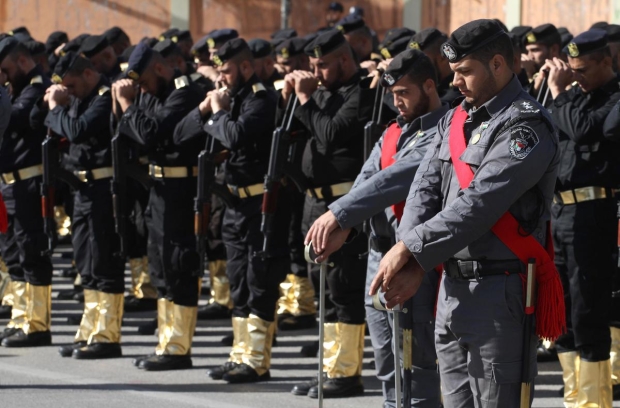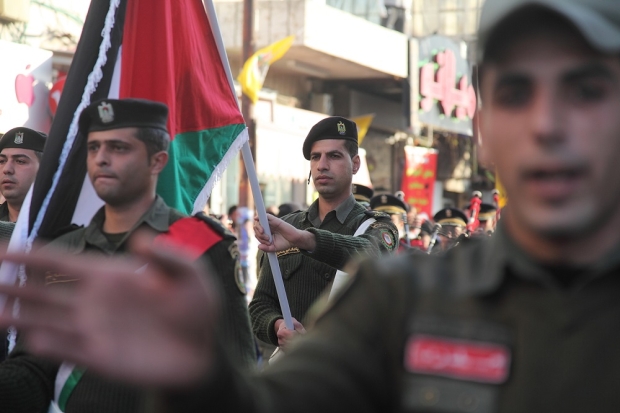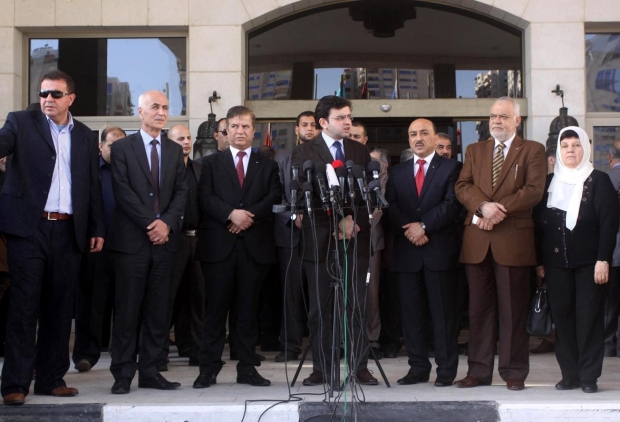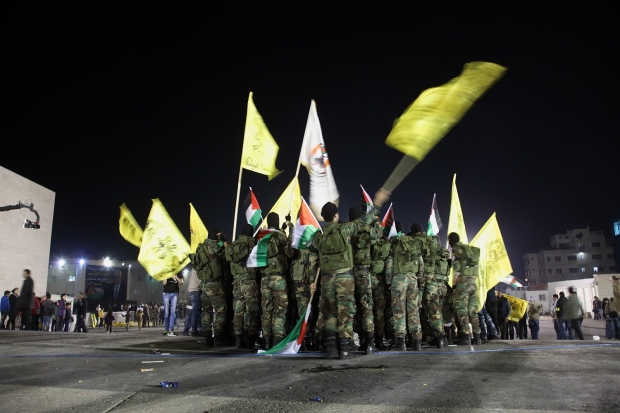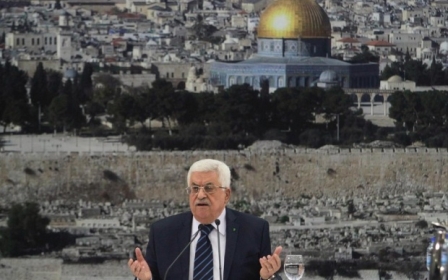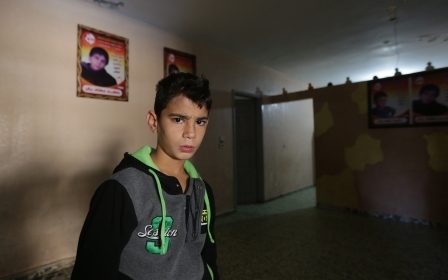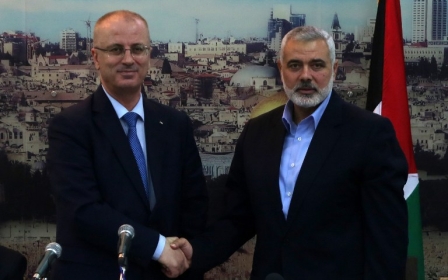ANALYSIS: Palestinians suffer as Hamas-Fatah rift deepens
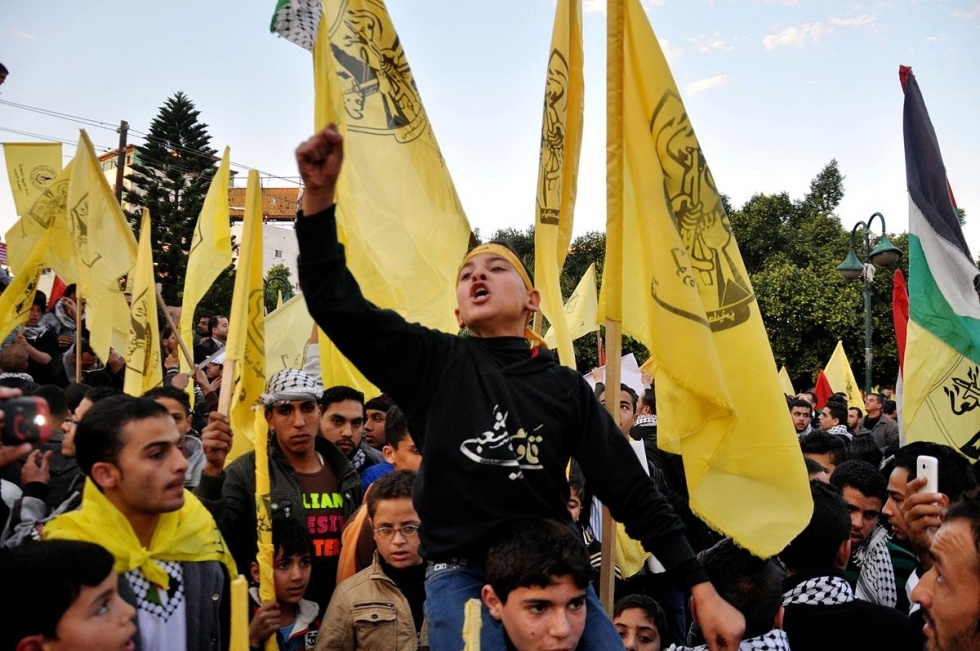
GAZA CITY – The political name-calling and accusations flying between Fatah and Hamas have reached a peak never before matched by the two major Palestinian factions.
Through the media and in public statements, Hamas has accused the Ramallah-based Palestinian consensus government of "choking” the Gaza Strip, and ignoring the current humanitarian crisis plaguing the besieged Palestinian territory.
“We invite Prime Minister Rami Hamdallah to take over the crossings and not escape from his responsibilities towards the Gaza Strip,” Hamas spokesperson Sami Abu Zuhri told reporters on Sunday.
The consensus government, formed by Palestinian President Mahmoud Abbas in June 2014, originally set out to prepare for new presidential and legislative council elections within six months.
But since its formation, the government has been unable to function within the Gaza Strip as a result of continued squabbling between Fatah and Hamas.
The PA-led government said it has not been able to do its job in Gaza because Hamas maintains a shadow authority in the territory.
Abu Zuhri denied this accusation, while Hamas said it did not give any input before President Abbas, a Fatah leader, appointed the new government’s ministers.
Unpaid salaries anger workers
Abu Zuhri said the consensus government was trying to shirk its responsibilities towards Gaza by discriminating against civil employees.
When a Hamas-led government was in power in the strip, it employed over 45,000 staff members and civil servants, but could not regularly pay their salaries. Today, these same employees work in Gaza’s ministries, hospitals and schools, but are still without pay.
President Abbas, meanwhile, has refused to pay any salaries to employees that were hired after 2007, the year Hamas took over the Gaza Strip. Last October, Qatar sent a one-off payment of $1,200 to each staff member.
As a result of these long-unpaid salaries, Gaza has witnessed a series of strikes across most sectors, including schools and hospitals.
Despite the pressure tactic, however, the Palestinian government has taken very little action to meet the workers’ demands.
‘A shadow government’ in Gaza?
On Friday, when a delegation from the consensus government left Gaza after a four-day visit, government spokesman Ihab Bseso said all efforts were being made to solve the problems in Gaza.
The Palestinian Ministry of Finance in Ramallah also said it spent 47 percent of its annual budget on the Gaza Strip. Ismail Hanyieh, Hamas leader and former prime minister, has disputed this, however.
President Abbas has set conditions to taking control over Gaza and helping alleviate the blockade, which include bringing PA security forces in to work on the ground in Gaza, and on its borders.
Hamas, however, does not seem willing to hand over total security, but will only relinquish control over Gaza’s border crossings, and agree to sharing administrative positions and ministries.
Mahmoud al-Habash, a religious affairs adviser to Abbas, blamed Hamas and Israel for creating obstacles to real Palestinian reconciliation. “Hamas insisting on acting as shadow government during the presence of official government has unfortunately failed reconciliation and reconstruction,” he said.
Al-Habash called on Hamas to commit to Palestinian reconciliation, and allow the consensus government to function on the ground in Gaza. Hamas, he added, must accept that only one Palestinian leadership, one government, holds power.
Prior to the establishment of the Palestinian consensus government, the occupied Palestinian territories were divided between Hamas-controlled Gaza, and the West Bank, run by the PA.
At the time, Hamas relied heavily on revenues from smuggling tunnels linking Gaza to neighbouring Egypt, and on financial support from Iran to run everyday life in Gaza.
After Egyptian President Mohamed Morsi was ousted from power in 2013, his successor, Abdel Fattah al-Sisi, began a military campaign to close most of the tunnels between Egypt and Gaza along the shared Rafah border.
Analysts said that these shrinking revenues were what forced Hamas to sign the reconciliation deal with its rival, Fatah.
Reconciliation not a priority
Senior Hamas leader Ismail Haniyeh said last week that, "the government has not managed to prove it is the government of the entire Palestinian people".
As the political stalemate persists, the thinking inside Hamas is that the Islamic movement can retake control over governance in the Gaza Strip.
Hamas has also made contact with expelled Fatah leader Mohammed Dahlan, who sent money through the United Arab Emirates to support Palestinian victims of Israel’s 51-day war on Gaza last summer.
Fatah, meanwhile, cancelled most of its anniversary celebrations in Gaza this year. On 1 January, however, Fatah members marched through the main squares of Gaza City waving flags and singing songs to mark the group's 50th anniversary.
Political analyst Dr. Adnan Abu Amer told MEE that according to information he obtained from sources inside the PA, Hamas has offered compromises to the Ramallah-based government, but the president is unwilling to make serious efforts to bridge the gap.
Abbas “is responsible for the delays in reconciliation, and there is no solution but for him to take charge to end the isolation of Gaza”, Abu Amer said.
Meanwhile, the current political split and failure of the consensus government has resulted in an inability to address the many problems plaguing Gaza, including electricity shortages, unpaid wages, stalled reconstruction, and other humanitarian crises resulting from the continued siege.
Abbas also appears to have more pressing priorities, as Israel has refused to hand over $127m in Palestinian tax revenues after the PA moved to join the International Criminal Court.
Without these funds, the PA appears unlikely to be able to pay its staff member salaries, leaving 165,000 Palestinians in both the West Bank and Gaza in limbo.
New MEE newsletter: Jerusalem Dispatch
Sign up to get the latest insights and analysis on Israel-Palestine, alongside Turkey Unpacked and other MEE newsletters
Middle East Eye delivers independent and unrivalled coverage and analysis of the Middle East, North Africa and beyond. To learn more about republishing this content and the associated fees, please fill out this form. More about MEE can be found here.


